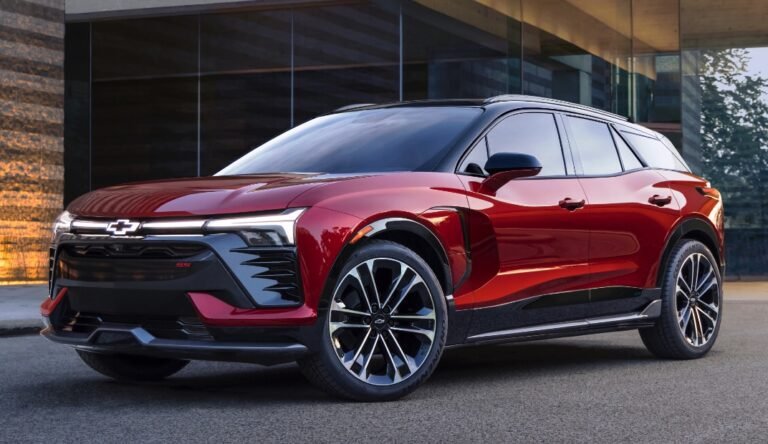General Motors has resumed sales of the Chevrolet Blazer EV — and at a cheaper price — more than two months after the automaker pulled the vehicle due to software problems.
The company temporarily halted sales of the Blazer EV in December after early customers reported problems with the SUV’s infotainment screen and charging at DC fast charging stations.
GM said in a statement that the company “made significant software updates that will improve features and functionality to meet the high expectations of our customers. We’re confident these improvements will address the concerns heard by some early owners, and as promised, we’re bringing our learnings to other products in GM’s lineup.”
The company said it added other software features, such as customizable colorful ambient lighting and revised graphics with a battery percentage indicator.
Existing Blazer EV owners should bring their car to a GM dealership for a software update to address any potential issues in the future. GM did not go into detail about exactly what went wrong, saying only that there was no single root cause. The company says it has improved its quality and software testing processes to prevent similar problems in the future.
The automaker kicked off the comeback with price cuts and news that the Blazer qualifies for a $7,500 federal tax credit — both of which could help jump-start sales.
The LT AWD trim of the Blazer EV now starts at $50,195, up from $56,715. The RS AWD now runs $54,595, up from $60,215. And the RS RWD is down to $56,170 from $61,790.
The return of the Blazer to the roads is a critical moment for GM, which is intended to be the first true mass-market EV to be built on the company’s new Ultium platform. The Ultium is slated to support an entire lineup of electric vehicles in the coming years, which means GM needs to make sure it fixes all the kinks as soon as possible.
The Blazer’s temporary absence also left GM with one less electric vehicle to sell once it ditched the Bolt — a decision the company eventually reversed after a public outcry.
While the company nearly doubled its US EV sales from 2022 to 2023 to more than 75,000, the bulk of those were the Bolt (and its more SUV sibling, the Bolt EUV).
